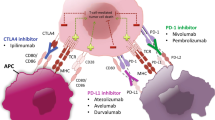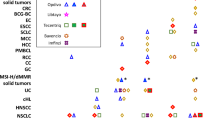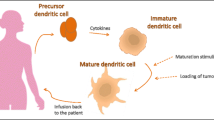Abstract
Oncolytic virus therapy (OVT) represents a new class of therapeutic agents in cancer treatment. The molecular and cellular mechanisms of action of OVTs have been evaluated in nonclinical/clinical phase trials. Various genetically modified viruses have been developed as oncolytic agents, and the first approval of an OVT for clinical use was issued by the US Food and Drug Administration in 2015. In this context, more and more clinical development of OVTs is anticipated in the future. This article provides a risk assessment of OVT based on the safety data obtained from all clinical trials to date using a publicly available database. The most common adverse events (AEs) observed in clinical trials have been infection-related symptoms such as fatigue, chills, fever, and nausea; few serious AEs have been observed, regardless of the kind of virus or transfected genes. In vivo systemic infusion of OVTs demonstrated a high percentage of AEs, but most AEs were manageable using common drugs. This paper describes OVTs’ specific safety/toxicity profiles and encourages the performance of further clinical trials of OVTs to address the most serious challenges anticipated in the development of OVTs as a new class of drugs for the treatment of cancer.
Similar content being viewed by others
References
Matsuda T, Aruga A. Comparison of regulations for the development of oncolytic virus therapy in the United States, the European Union, and Japan. Journal of Regulatory Science. 2016;4:1–9.
US Food and Drug Administration. FDA approves first-of-its-kind product for the treatment of melanoma. http://www.fda.gov/NewsEvents/Newsroom/PressAnnouncements/ucm469571.htm. Published October 27, 2015. Accessed August 28, 2016.
Chiocca EA. Oncolytic viruses. Nat Rev Cancer. 2002;2:938–950.
Lichty BD, Breitbach CJ, Stojdl DF, Bell JC. Going viral with cancer immunotherapy. Nat Rev Cancer. 2014;14:559–567.
Lawler SE, Speranza MC, Cho CF, Chiocca EA. Oncolytic viruses in cancer treatment: a review. JAMA Oncol. 2017;3:841–849.
Aghi M, Martuza RL. Oncolytic viral therapies—the clinical experience. Oncogene. 2005;24:7802–7816.
Shibata S, Uemura R, Suzuki T. Factors that affect the acquisition of reward premiums for promotion of innovative drug discovery in Japan. Therapeutic Innovation & Regulatory Science. 2016;50:56–65.
Shibata S, Uemura R, Suzuki T. Impact of premium rewards for the promotion of innovative drug discovery on the Japanese pharmaceutical market: an analysis by therapeutic area. Therapeutic Innovation & Regulatory Science. 2016;50:49–55.
Shibata S, Uemura R, Suzuki T. Comparative analysis between the top-selling Japanese pharmaceutical market and those of the United States, the United Kingdom, France and Germany. Therapeutic Innovation & Regulatory Science. 2016;50:221–227.
Shibata S, Uemura R, Suzuki T. Evaluating the effectiveness of repricing for market expansion in the Japanese drug pricing system. Therapeutic Innovation & Regulatory Science. 2016;50:751–758.
Cripe TP, Ngo MC, Geller JI, et al. Phase 1 study of intratumoral Pexa-Vec (JX-594), an oncolytic and immunotherapeutic vaccinia virus, in pediatric cancer patients. Mol Ther. 2015;23:602–608.
Ries SJ, Brandts CH. Oncolytic viruses for the treatment of cancer: current strategies and clinical trials. Drug Discov Today. 2004;9:759–768.
Lawler SE, Chiocca EA. Oncolytic virus-mediated immunotherapy: a combinatorial approach for cancer treatment. J Clin Oncol. 2015;33:2812–2814.
Laurie SA, Bell JC, Atkins HL, et al. A phase 1 clinical study of intravenous administration of PV701, an oncolytic virus, using two-step desensitization. Clin Cancer Res. 2006;12:2555–2562.
Kris MG, Hesketh PJ, Somerfield MR, et al.; American Society of Clinical Oncology. American Society of Clinical Oncology guideline for antiemetics in oncology: update 2006. J Clin Oncol. 2006;24:2932–2947.
Navari RM, Aapro M. Antiemetic prophylaxis for chemotherapy-induced nausea and vomiting. N Engl J Med. 2016;374:1356–1367.
Adams VR. Adverse events associated with chemotherapy for common cancers. Pharmacotherapy. 2000;20(7, pt 2):96S–103S.
Chopra D, Rehan HS, Sharma V, Mishra R. Chemotherapy-induced adverse drug reactions in oncology patients: a prospective observational survey. Indian J Med Paediatr Oncol. 2016;37:42–46.
Raper SE, Chirmule N, Lee FS, et al. Fatal systemic inflammatory response syndrome in a ornithine transcarbamylase deficient patient following adenoviral gene transfer. Mol Genet Metab. 2003;80:148–158.
Hacein-Bey-Abina S, Von Kalle C, Schmidt M, et al. LMO2-associated clonal T cell proliferation in two patients after gene therapy for SCID-X1. Science. 2003;302:415–419.
Amariglio N, Hirshberg A, Scheithauer BW, et al. Donor-derived brain tumor following neural stem cell transplantation in an ataxia telangiectasia patient. PLoS Med. 2009;6:e1000029.
Shibata S, Uemura R, Chiba K, Suzuki T. A comprehensive analysis of factors that contribute to conditional approval and all-case surveillance designations that subsequently lead to shortening of review times in Japan. Journal of Regulatory Science. 2016;4:1–9.
Russell SJ, Peng KW, Bell JC. Oncolytic virotherapy. Nat Biotechnol. 2012;30:658–670.
Author information
Authors and Affiliations
Corresponding author
Rights and permissions
About this article
Cite this article
Matsuda, T., Karube, H. & Aruga, A. A Comparative Safety Profile Assessment of Oncolytic Virus Therapy Based on Clinical Trials. Ther Innov Regul Sci 52, 430–437 (2018). https://doi.org/10.1177/2168479017738979
Received:
Accepted:
Published:
Issue Date:
DOI: https://doi.org/10.1177/2168479017738979




